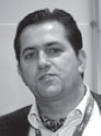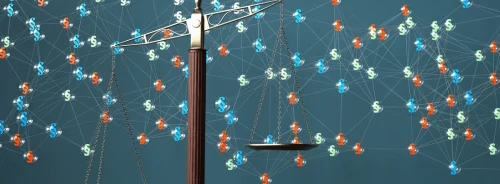HealthManagement, Volume 6 / Issue 3 / 2011
Dear Reader,
Today, the financial crisis has once again hit us very hard. Greed still plays havoc with the international stock markets. As banks have grown too big to fail, in 2008 our politicians decided to bail them out with our tax money. Many of us lost savings due to the irresponsible actions of the banking sector without any consequences for the offenders.
The following two years the bankers paid themselves hefty bonuses and today, some banks are once again bankrupt. More public money will flow into their coffers in order to avoid another crisis, to the detriment of other important investments. Once again, our healthcare budgets will have to suffer, despite that investments in the healthcare sector trigger major advancements to the benefit of our society.
What Lessons Can be Learnt for Healthcare (IT)?
Firstly, even when we are told that there is not enough money, at the edge of a disaster it is only a question of government priorities where to spend it. Our banks know this too well. Secondly, even a state on the edge of bankruptcy itself will always find (or better redirect) resources i.e. the taxpayer's money in order to avoid a possible exodus.
This understanding supports my belief that it is up to us in the healthcare industry (and IT) to create enough public pressure in order to receive the public support we deserve for our hard work. We have a particular advantage, as healthcare is such an important issue in our society that no state wants to give up control. Our industry is one of the most important factors in our economies.
So far there is no need to gather in front of parliaments to give healthcare the priority it deserves. But all stakeholders are challenged more than ever before to collaborate closely and to put enough pressure on our governments to make our issues heard. As we must learn from the banks – there is sufficient supply of public money if governments have no other choice!
This should, on the other hand, encourage us even more to prove that properly managed healthcare IT improves cost efficiency, safety and patient outcomes. Several excellent examples will be presented during the IT @ Networking Awards 2012 (IT@2012), held in Brussels from 18 – 19 January.
In this issue of Healthcare IT Management we are covering the impact of Social Media in healthcare. During the Doctors 2.0 Conference it was amazing to learn how such modern and often simple tools can increase efficiency and output.
Furthermore, we have a look into Data Centre Trends in the Healthcare Sector, highlight Intelligent Infrastructure: Lean, Smart and Green and discuss The Ethics of Online Healthcare. This issue we introduce the FEMI Digital Health Project and explain how Voting in CAD for Mammography can work. Our country focus presents the healthcare system in Switzerland. In this context it is a big pleasure to draw your attention to the HIMSS CIO Summit, held from 20 – 22 November in Geneva.
Our IT@2012, organised again in collaboration with the European Association of Hospital Managers, is the world's only event promoting "competing science". I am sure that this is the reality we will have to face sooner rather than later.
IT@2012 will present some of the finest medical technology and healthcare IT solutions in the market and our panel of expert judges will – together with the audience - have the final say in what they believe is valuable for their institutions.
Each presenter must adhere to our strict presentation criteria (see page 12 for more details). Therefore you can expect an open discussion of successes and pitfalls in implementation and operation. The result will be unprecedented cross-departmental learning. All relevant information can be found at www.ITandNetworking.org and we will provide in-depth information about the different projects.
Finally, enjoy reading this latest issue of Healthcare IT Management. For comments, suggestions and criticism, please contact me at any time.
Best regards,

Christian Marolt
Secretary General and Editor-in-Chief






